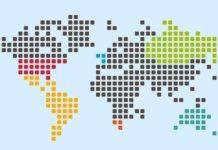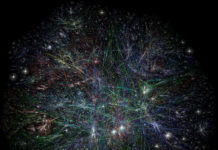Author: US Holocaust Museum
The world has changed momentously in the 25 years since the United States Holocaust Memorial Museum opened its doors. Globalization and the digital revolution are constantly transforming our lives. As we know from history, a rapidly changing world often causes social fragmentation, so perhaps it’s not all that surprising that we’re witnessing an alarming rise in hate, antisemitism, and extremism as well as increasing distrust of institutions. And yet just when we need history to help us better understand and navigate the moment, our country is experiencing a steady diminishment in historical knowledge.
A 2017 NPR/PBS NewsHour/Marist Poll indicated that 30% of Americans did not know the year the United States declared its independence. The year before, a survey by the Annenberg Public Policy Center revealed that only a quarter of Americans could name the three branches of government — a decline from 38% in 2011. In 2014 the American Council of Trustees and Alumni found that 39% of Americans did not know Franklin D. Roosevelt was president during World War II. History is about much more than facts, but they are necessary in order to understand the causes and consequences of events.
If we believe that the purpose of education is to help shape our nation’s future, then this troubling trend must be reversed. A paraphrased quote often attributed to Thomas Jefferson said it clearly: “An educated citizenry is a vital requisite for our survival as a free people.” At the United States Holocaust Memorial Museum, we view this imperative with particular urgency. Our founders built the institution to stand as a “living memorial” to the six million victims of the Holocaust precisely by speaking to both the past and the future, by serving as a lesson and a warning, a challenge and an inspiration. Holocaust history teaches that the unthinkable is possible, even in an educated, advanced nation, and that individuals have far more power than they realize. We believe having basic knowledge of what led to the Holocaust — what made it possible in the heart of “Western civilization” — is critical to being a responsible, engaged citizen. The Holocaust reveals our potential for evil and good; it also reveals the motivations behind and implications of human decisions at every level of society.
Well-taught history teaches us about human nature and pushes against common human tendencies. It prevents us from settling on simple answers to complex questions. It can also be a powerful vehicle for stepping out of the pressures and speed of the present in order to have a different set of conversations about what makes societies strong or weak and the role of individuals in shaping society. That’s why a significant aspect of our work brings Holocaust history not only to high schools and colleges — but also to important institutions responsible for preserving American democracy, such as law enforcement, the military, and the judiciary.
It’s also why our work is designed to stimulate critical thinking. Holocaust education — all good education — should promote this kind of self-reflection, a recognition of our tendency to rationalize our behavior, and the adoption of a mindset that demands more of ourselves, that continually provokes new questions about our world and ourselves. At the Museum’s dedication, our Founding Chairman Elie Wiesel said, “The Museum is not an answer. It’s a question.”
We believe it is many questions. And to that end, as a kickoff to our 25th year, we are launching a digital initiative called Never Stop Asking Why. We aim to challenge people of all ages from around the world to take a step back and pause, to ask questions about the Holocaust and to think critically about what its history means for them and their communities. The Museum will be sharing videos and content of people asking their questions, which we hope will inspire others to participate in the #AskWhy online conversation.
I will never forget what one Iowa City high school student wrote about her experience visiting the Museum: “Our senior class came to D.C. expecting to have fun and maybe learn about government and politics. I don’t think any of us expected to learn about humanity.”
I urge you to join us in thinking about what questions Holocaust history raises for you about humanity. Why did people turn on co-workers and classmates, friends, and neighbors? Why were so many susceptible to Nazi ideology? Why did some take great risks to help a fellow human being? Why do some deny the Holocaust now?
Most importantly, just Never Stop Asking Why. As documentary filmmaker Ken Burns said, “The past often offers an illuminating and clear-headed perspective from which to observe and reconcile the passions of the present…The history we know, the stories we tell ourselves…allow us to live beyond our fleeting lifespans and permit us to value and love and distinguish what is important. And the practice of history, both personal and professional, becomes a kind of conscience for us.”
source: medium.com












